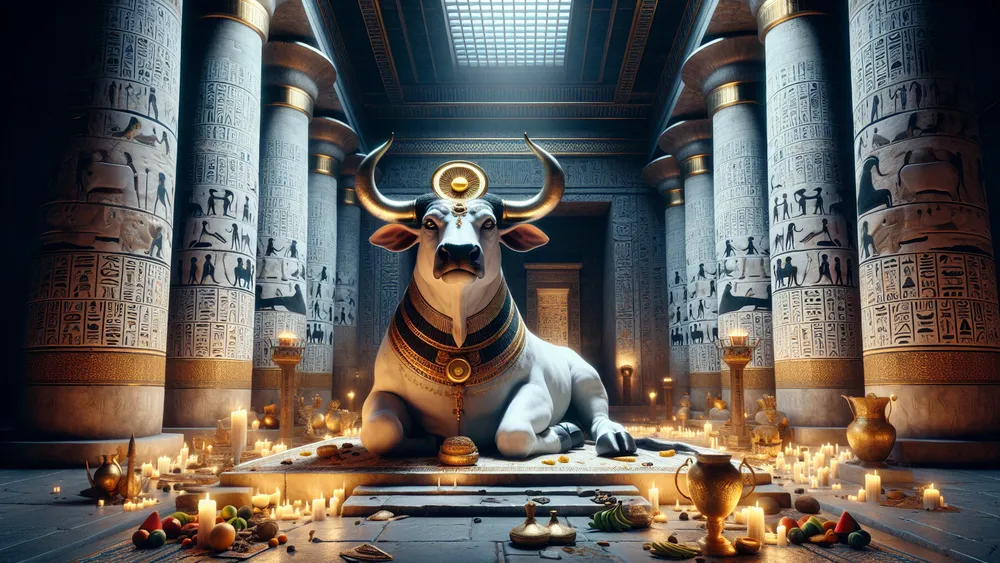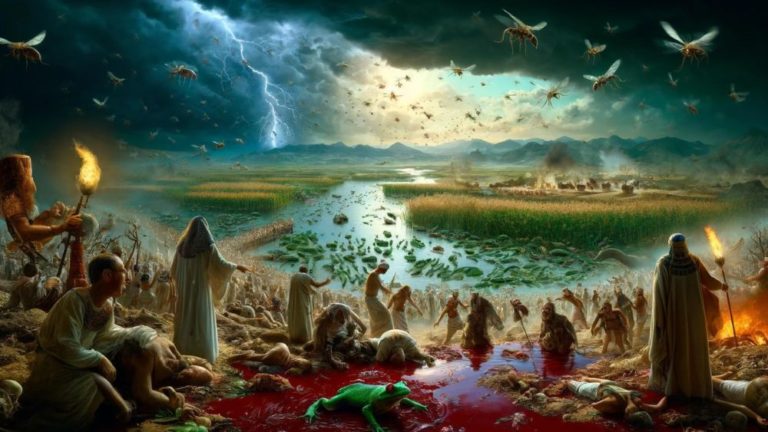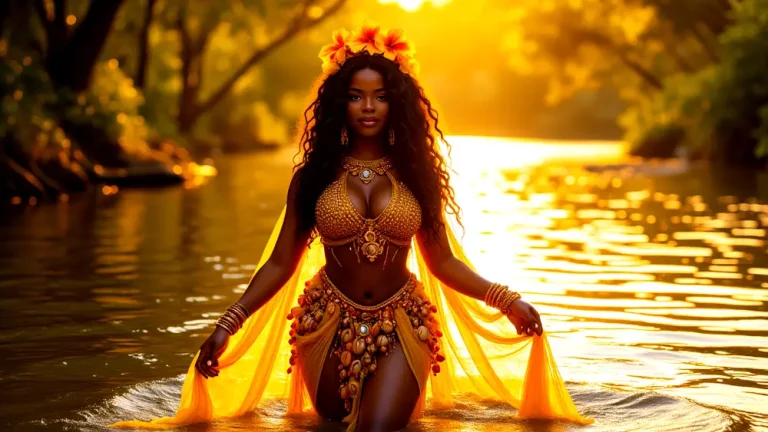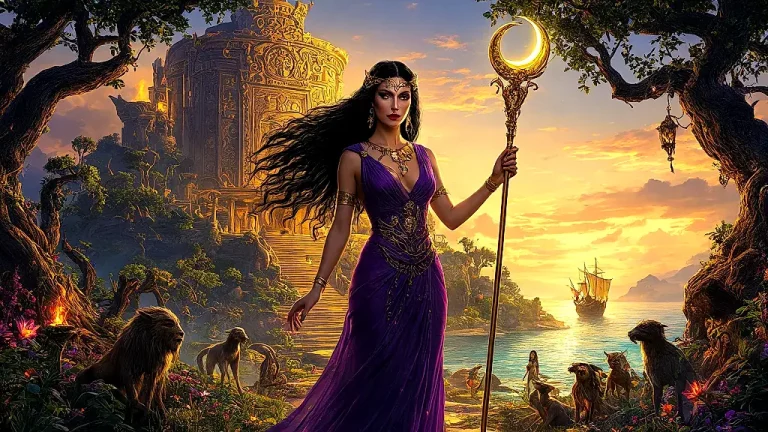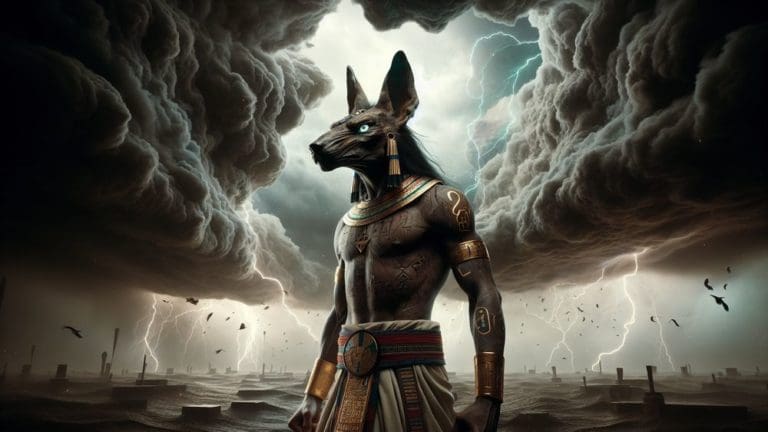Buchis: Sacred Bull Deity Of Egyptian War God Montu
In the rich history of Egyptian beliefs, where they thought of gods and goddesses as part of nature and something more, Buchis is an interesting one. Think of a time with power and how a bull wasn’t just admired but meant more, like in old Egypt when it was a symbol of might and fertility.
Key Points:
- Buchis is a sacred bull linked to the war god Montu.
- He symbolizes power, new life, and safety.
- Worship of Buchis was important during the New Kingdom period.
- Rituals included offerings and ceremonies led by priests.
- Buchis and Montu are connected in war and strength.
- Artistic depictions show Buchis with solar disks and crowns.
- Buchis left a lasting mark on ancient Egyptian beliefs and culture.
Like in Hindu traditions today with sacred cows, this was how they saw bulls. The sacred bull god, Buchis, which was tied to Montu, the god of war, meant not just strength but also being protective and supporting things needed for the land to thrive.
When we look into Buchis, you will see how people included this god in their lives, affecting what religious activities they did and their values in society. This start makes the way for diving deeper into where Buchis came from, what it meant, and its lasting mark, guiding you through the world of ancient Egyptian thoughts.
Buchis: Overview and Key Facts
| Key Aspect | Description |
|---|---|
| Name | Buchis |
| Role | Sacred bull linked to the war god Montu |
| Symbolism | Power, new life, safety |
| Cultural Significance | Important in old Egyptian life as a form of divine strength |
| Historical Period | They mostly honored him during the New Kingdom period and later |
| Associated Deity | Montu, a war god |
| Worship Practices | They did ceremonies, gave offerings, rituals done by priests |
| Artistic Depictions | Bulls often appear with a sun disk and snake, meaning divine rank |
| Archaeological Finds | Temples and items found in places like Armant and Hermonthis |
| Legacy | Shaped Egyptian religious and cultural beliefs |
The Importance of Buchis in Mythology
When we look closer at stories about Buchis, we find out more on origins and what it means, alongside rituals that made it an essential part of ancient Egyptian life.
How Buchis Came to Be in Egyptian Stories
How Buchis became a sacred bull is a part of old Egypt’s life. Much like lions are strong elsewhere, bulls in Egypt were about strength and new life. Buchis came about from these ideas, connected with Montu, who had fighting skills and watched over them. This didn’t just happen; people believed bulls were strong and safe, good in war and quiet times.
They started worshiping Buchis during the New Kingdom. That was when Egypt took lands and got stronger, and so the idea of a strong and watching deity was very important.
To see why Buchis mattered, think about what was going on then. Added strength at that time was often because of deities like Montu and, by extension, Buchis. Some key points are:

- Beginning of the Buchis cult in Hermonthis, where Montu was important too.
- Building of Buchis temples, showing its place in religion.
- Including Buchis in major religious events to back the pharaoh’s rule. These points mean Buchis wasn’t just about religion but also showed the state’s power and divine watch.
Buchis became a sacred bull in ancient Egypt, symbolizing strength and protection, especially during the New Kingdom when people worshiped him alongside Montu to reflect their growing power and divine support.
What Buchis Stands For and Its Traits
Buchis was a holy bull and had many important qualities for the Egyptians. Strong and enduring. They thought Buchis was about unmatched power, vital in battles and farming. Strength was key. Fertility meant that the bull’s power could help the land and people prosper, much like rain for others. Protecting was also a big part of what Buchis was. Keeping people safe from dangers, both real and spiritual.
These ideas were not just thoughts; they were part of how people worshiped Buchis. Rituals and offerings were to bring these powers to their lives.
How People Honored Buchis
In ancient Egypt, people worshiped Buchis differently. Detailed rituals and ceremonies revealed the deity’s role in their religion. Like some today, who hold special events for heroes, they organized temple events to respect Buchis. These gatherings happened in temples just for Buchis, like in Hermonthis. Priests led sacred rites. People asked Buchis for strength, harvest success, and safety. Offers were vital.
Gifts such as food, sweet smells, and valuable things showed they cared and asked for favor.
Also, these rituals were meaningful. Priests, the holy guides for people, did these tasks carefully. They said hymns and prayers. Burned incense kept places clean. Prepared and gave gifts to the bull. All these meant a bond between Buchis and people. For safety and wealth, such acts matter. Here’s what they did:
- Recitation of Hymns: Priests said holy words to call Buchis.
- Offering of Food and Incense: People gave things to calm and honor.
- Ceremonial Processions: Walks were for praise and to see the bull.
- Purification Rites: Sweet smoke and water cleaned areas.
- Symbolical Acts: Actions meant to symbolize strength and growth.
These acts reveal how deeply the Egyptians respected Buchis, linking him into everyday life and spiritual actions.

Buchis and Montu, the War God
When we look into this more, Buchis and Montu, in Egyptian stories, are connected. This is especially in war and gods’ power. It is deep. The meaning here appears in the setting of war, importance in war, and god’s power.
How Buchis and Montu Are Connected
In the complicated story of Egyptian mythology, Buchis was a powerful part of Montu. Montu was a strong war god who used Buchis to show his power. Buchis wasn’t just a symbol; it meant Montu’s power during war. Warriors felt courage and strength when Buchis was there. It mattered. People saw it as real, not just a story.
The sacred bull, in rituals for help in battle, was vital. Buchis in war helped Montu’s role in Egyptian society.
How Buchis Is Shown in Egyptian Art
In the area of Egyptian art, different forms appeared to mean Buchis’s traits and importance. The art of Buchis was full of meaning. Sculptures of Buchis, with a strong bull, meant power and strength. Buchis often wears solar disks or crowns, showing a link to Ra.
These choices were not random; they were meant to mean the bull’s traits to followers, which was very important since it meant protection and fertility.
To better explain the different ways Buchis was shown, look at this table:

| Artistic Representation | Description | Symbolism |
|---|---|---|
| Sculpture | Strong bull with solar disk | Power and divine strength |
| Relief | Bull with crown and sun signs | Ra and kingship connection |
| Painting | Bull in ritual walk | Fertility and protection |
These images were more than just religious items; they were key in Egyptian life, meaning Buchis’s traits and role among gods.
How Buchis Left Its Mark on Ancient Egypt
When you look more, it’s clear that Buchis had a big impact on how people in ancient Egypt lived and thought. It was long-lasting. Impact on culture and ideas showed how important it was. Importantly, the legacy it left behind in what they believed and did was lasting.
Buchis’s Influence on Egyptian Life and Beliefs
Buchis, like a big hero, had a lasting impact on life and ideas in Egypt. As a god, Buchis stood for both strength and growth, was a crucial part connecting people with gods. Temples, where rituals happened, were for Buchis. They mattered. Societal values and religious practices changed. Buchis often appeared with other gods, and this showed how gods were linked, demonstrating a balance in power.
Moreover, the mix of Buchis with other gods meant Egyptians could show their respect for gods, affecting their everyday actions and community rules deeply.

Buchis greatly influenced Egyptian life and beliefs, representing strength and growth while connecting people to the divine.
What We’ve Found About Buchis in Ancient Ruins
Finding old places is big for understanding how people respected Buchis, like old stuff that tells us about the past. At Armant’s Temple of Montu, digs discovered important items and remains that suggest respect for Buchis. In these finds are the remains of Bucheum, special for the sacred bulls, which means much about the ceremonies that were about the deity.
What’s clear is the care and respect people gave Buchis, meaning how much it mattered. The items from these places, like statues, writings, and ceremonial things, mean a lot for seeing Buchis’s role. For example, writings that say about the bulls and their roles suggest a respected way of worship. These things mean Buchis was a sign of power and growth and a big part of people’s ways.
When these clues come together, they mean more about Buchis’s mix in Egyptian gods, underlining the lasting impact in life and belief in ancient Egypt.
Pantheon of Egyptian Mythology Gods
The group of Egyptian gods is a big mix with each showing different parts of life, nature, and the universe. Egyptian gods’ roles mattered in day-to-day life and important events. Figures, such as Ra and others, played roles in life’s stories, including creation and what happens after life. People who want to see all gods can find a list of Egyptian Gods. It has details and what they mean.
The big group means Egyptians had strong ties with what was around them, and it influenced how they saw the universe. Their mythology was enduring.
FAQs
1. What is the significance of Buchis in Egyptian mythology?
The significance of Buchis in Egyptian mythology lies in its role as a sacred bull deity embodying strength, fertility, and protection, closely associated with the war god Montu.
2. How was Buchis worshipped in ancient Egypt?
How Buchis was worshipped in ancient Egypt involved elaborate temple ceremonies, offerings, and rituals conducted by priests and devotees to honor the sacred bull deity.
3. What are the key attributes associated with Buchis?
The key attributes associated with Buchis include strength, fertility, and protection, reflecting its role as a sacred bull deity in Egyptian mythology.
4. How does Buchis relate to the war god Montu?
Buchis relates to the war god Montu as a sacred bull deity that embodies Montu’s martial power and serves as a physical manifestation of his strength and virility.

